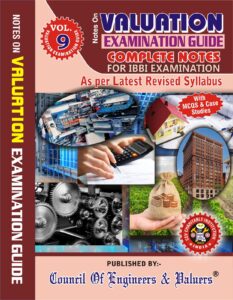Saturday Brain Storming Thought (233) 27/07/2024
NEW CAPITAL GAIN TAX REGIME PROPOSED IN THE UNION BUDGET 2024-25

New Capital Gain Tax Regime proposed in the Union Budget 2024-25
In the Union Budget 2024, presented by Finance Minister Nirmala Sitaraman on 23/07/2024
1) Raising the tax rate on long-term capital gains on equity from 10% to 12.50%
2) Raising the tax rate on short-term capital gains on equity from 15% to 20%
3) Exemption limit of Rs 1 Lakh on sale of equity has been raised to Rs 1.25 Lakh on Long Term Capital Gain
4) Long Term Capital Gain rate on all other assets has been slashed from 20% to 12.50%, while the indexation benefit has been phased out
5) Listed financial assets held for more than a year will be classified as long term
6) Unlisted financial assets and all non-financial assets will have to be held for atleast two years to be classified as long term
7) Unlisted bonds and debentures, debt mutual funds and market linked debentures, irrespective of holding period, however will attract tax on capital gains at applicable rates
Major changes brought about in taxation of capital gains by the Finance (No 2) Bill, 2024
The taxation of capital gains has been rationalised and simplified
1) Holding period has been simplified ie 1 year or 2 year
2) Tax rates have been rationalised and made uniform for majority of assets
3) Indexation has been done away with for ease of computation with simultaneous reduction of rate from 20% to 12.50%
4) Parity between Resident and Non-resident
5) No changes in roll over benefits
Date when the new taxation provisions comes into force
Taxation of capital gains come into force from 23/07/2024 and shall apply to any transfer made on or after 23/07/2024
Holding period
1) For listed securities – 1 year
2) Unlisted securities and all other assets – 2 year
Listed Securities
Listed securities are any financial instruments that are publicly traded on an exchange
This includes the stocks and bonds you buy and sell, as well as derivatives that experienced traders and investment companies trade
The path to becoming listed takes time and preperation
Unlisted securities
A security traded in the over-the-counter market that is not listed on an organized exchange
Benefits from the changes in holding period
1) Listed assets like REITs, InVITs – holding period is reduced from 36 months to 12 months
2) Holding period of gold, unlisted securities is also reduced from 36 months to 12 months
Holding period of Immovable property and unlisted shares
The holding period of Immovable property and unlisted shares remains the same as earlier ie 24 months
Change in the rare structure for STT paid capital assets
Rate of short-term STT paid listed equity, Equity oriented mutual fund and units of business trust ( Section 111A) has increased from 15% to 20%
Similarly the rate for these assets for long-term (Section 112A), has increased from 10% to 12.50%
Who will benefit bt change in rate from 20% (with indexation) to 12.50% (without indexation)
The reduction in the rate will benefit all category of assets
In most of the cases, the taxpayers will benefit substantially
But where the fain is limited vis-a-vis inflation, the benefit will also be limited or absent in a few cases
Taxpayer can avail Roll over benefits on capital gains
Yes
The roll over benefits remains the same as earlier
There is no change in roll over benefits already available under the IT Act
Taxpayers who want to save on LTCG tax even with low rates, can continue to avail roll over benefits on fulfilment of conditions as applicable
In which assets, can the LTCG be invested for roll over benefits
For roll over benefits, taxpayers can invest their gains in house under section 54 or section 54F or in certain bonds under section 54EC
For complete details of all roll over benefits, refer sections – 54, 54B, 54D, 54EC, 54F, 54G of the Income Tax Act
What is amount upto which roll over benefit is available
Investment of capital gains in 54EC bonds (upto Rs 50 Lakh)
In other cases, the capital gain is exempt from tax, subject to certain specified conditions
Overall rationale for changes
Simplification of any tax structure has benefits of ease of compliance viz computation, filing and maintaining of records
This also removes the differential rates for various classes of assets
Major exemptions for LTCG Tax
1) Section 54
This section concerns LTCG on the sale of house and reinvestment of the amount received on another house
2) Section 54EC
This section concerns LTCG on the sale of house and the reinvestment of the amount received in specified bonds
3) Section 54F
This section is related to LTCG on the sale of any asset other than a house and the reinvestment of the amount received in buying a house
4) Capital Gains Account Scheme ( CAGS)
If you are unable to invest the LTCG within the specified time, you can deposit the amount in CAGS account
The amount should be used within a given timeline to build or buy another residential property
Exemptions under section 54
1) You can get an exemption only for the purchase of 1 house
2) If you are using the capital gains to buy more than 1 house, you will be able to claim exemption only for the cost of 1 house
3) You can get an exemption under section 54 only if you are buying a house in India
4) Any residential property purchased outside the country will not get any exemption from paying LTCG tax
5) You can not sell the new house brought from the gains of sale of the old house untill 3 years after the purchase or completion of construction
Impact of change in LTCG tax rules
Case 1 : Those who purchased property recently and are selling Now
For example property purchased in year 2018-19 and selling now
1) Indexation was anyways less helpful
2) as the inflation of 5% to 6% over short periods not make much of difference
3) The cut in LTCG tax will significantly benefit them
Case 2 : If property was purchased long ago (after year 2001) and is being sold now
For example purchased in year 2002 and selling now
Impact on Building construction valuation
2002 – RCC – Rs 5500/Sqm
Indexed Cost = 5500 X (363/105)
= Rs 19014/Sqm
2024 – RCC – Rs 21780/sqm
Depreciation @ 20%
2024 – RCC – Rs 17424/Sqm
If new LTCG rules applied – Gain will be higher than old rules atleat for construction
Impact on Plot Valuation
Year 2002 – Plot Rate
Rs 1200/Sqm
Indexed plot rate =
1200 X (363/105)
= Rs 4148/Sqm
Year 2024 – Plot Rate
Rs 12000/Sqm
Gain as per old rule =
(12000 – 4148)
= Rs 7852/Sqm
Gain Tax as per old Rule
= (7852 X 20%)
= Rs 1570/Sqm
Gain as per New rule
= (12000 – 1200)
= Rs 10800/Sqm
Gain Tax as per New rule
= (10800 X 12.50%)
= Rs 1350/Sqm
So for the Plot Case
New rules are beneficial for taxpayers
In this care we have considered Ready Recknor Rates for both years
If Market Value of plot is much more than ready Recknor Rates
Calculation of gain tax will be changed from case to case
Case 3 : Those who purchased property before year 2001 and selling now
The indexation benefit will continue to be applicable on properties purchased before Year 2001
Finance Secretory T V Sonanathan has clarified in the post budget press conference
So actually, either there is a reduction or no change in respect of the effective rate of tax on immovable property and gold
As per Income Tax Department
The reduction in LTCG tax rate from 20% to 12.50% without indexation for real estate will benefit in majority cases
COMPILED BY:-

Er. Avinash Kulkarni
9822011051
Chartered Engineer, Govt Regd Valuer, IBBI Regd Valuer











